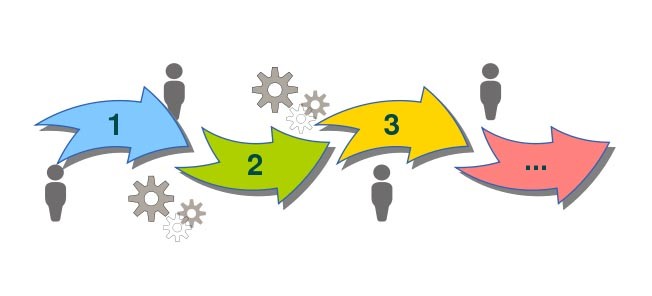how to get an elementary education degree
Embark on an exciting journey as we explore the roadmap to obtaining an elementary education degree. This guide is your golden ticket, a thrilling adventure filled with twists and turns, leading you to the treasure of knowledge. Read on, the quest awaits!
Elementary Education Is Crucial
A child's educational experience begins with elementary education, which normally spans kindergarten through sixth grade. Children acquire critical literacy, numeracy, social, and cognitive abilities during these years, laying the groundwork for their future education and growth. As a result, primary school teachers have a significant influence on how their pupils develop academically and personally.
Apart from imparting knowledge in fundamental areas like science, math, reading, and writing, elementary school teachers also have the duty to create a welcoming and inclusive learning atmosphere, support students' social and emotional growth, and enhance their critical thinking and problem-solving abilities. A talented and committed elementary school teacher can have a lifelong effect on a child's academic path and general well-being.

Types of Degree Programs in Elementary Education
For individuals who would like to work in elementary education, there are numerous degree programs accessible. The sort of degree you select will depend on your career goals and the amount of responsibility you intend to assume in the area. Each program offers varied levels of education and training. The most popular kinds of elementary education degree programs are listed below:
1. Elementary Education Associate Degree
Community colleges and certain four-year universities usually offer two-year programs leading to an Associate Degree in Elementary Education. Students who complete this degree will have a solid understanding of classroom management, teaching techniques, and child development. An associate's degree can be a starting point for a bachelor's degree in elementary education, even though it might not be sufficient to become a licensed elementary school teacher on its own.
An associate degree often entails coursework in curriculum development, early literacy, child psychology, and health and safety in educational settings. Additionally, practicum opportunities are available for students to obtain practical experience working with young children. In primary schools, an associate degree can also lead to positions as a paraprofessional or teacher assistant.
2. Elementary Education Bachelor's Degree
The most popular route to becoming a licensed elementary school teacher is to earn a bachelor's degree in elementary education. Colleges and universities all throughout the country offer this four-year curriculum, which offers thorough instruction in the subject areas and pedagogical techniques required to be successful as an elementary teacher.
Child development, instructional strategies, classroom management, educational psychology, and assessment techniques are among the subjects included in an elementary education bachelor's degree program. In addition, students study how to teach students with special needs, how to integrate technology into the classroom, and diversity and inclusion in education.
The student teaching experience, which involves students working in a real classroom for a semester or longer under the supervision of a certified teacher, is one of the main elements of a bachelor's program. Gaining practical experience is crucial for enhancing the abilities and self-assurance required to oversee a classroom and provide efficient education.
3. Elementary Education Master's Degree
The completion of a graduate-level degree, such as a Master's in Elementary Education, usually takes one to two years. Those who already hold a bachelor's degree and want to progress in their professions as elementary educators are the target audience for this degree. Advanced instruction in fields including research methodologies, educational leadership, and curriculum design is offered by master's programs.
A few master's programs are intended for people who want to become teachers but have a bachelor's degree in a discipline other than education. The degree requirements for these programs sometimes include teacher certification, enabling graduates to obtain licenses to teach elementary school.
Opportunities for leadership positions like curriculum coordinator, instructional coach, or school principal may become available with a master's degree. Additionally, it may result in increased earning potential and work security.
4. Education Doctorate (Ph.D. or Ed.D.)
The most advanced degree in education that may be obtained in this discipline is an Ed.D. or Ph.D. People who are interested in conducting research, teaching at the college level, or assuming leadership positions in educational policy and administration generally obtain this advanced degree.
Comprehensive coursework in research methodology, educational philosophy, and leadership practices is a requirement for a doctorate degree in education. In addition, students must finish a dissertation that entails original research on a primary education-related subject.
Doctorate degree graduates are equipped for leadership roles in educational organizations and school districts, as well as distinguished positions in academia, research facilities, and government agencies.
The Process of Earning a Degree in Elementary Education
After learning about the many primary education degree programs that are available, let's examine the procedures needed to earn your degree:
1. Do Your Research and Select the Best Program
Finding the primary teaching program that best suits your needs both personally and professionally is the first step towards earning your degree. Think about things like the degree you want to pursue, the school's reputation, if you can enroll online or part-time, and the program's particular areas of concentration.
The program's accreditation is another crucial factor to take into account. Programs that are accredited have been evaluated by an impartial accrediting authority and satisfy particular quality requirements. Completing an authorized program can improve your chances of finding employment and guarantee that employers and licensing bodies will accept your degree.
2. Fulfill the Requirements for Admission
After selecting a program, you must fulfill the prerequisites for admission. These prerequisites differ based on the degree level and the school, but generally speaking, they consist of the following:
- To be eligible for associate's and bachelor's degree programs, you must have a high school diploma or its equivalent, or a GED.
- Bachelor's Degree: You must have a bachelor's degree from an approved institution in order to apply to master's and doctorate programs.
- It will be necessary for you to submit official transcripts from all previous educational institutions you have attended.
- Recommendations from Teachers, Employers, or Other Professionals who can Attest to Your Qualifications and Potential as an Elementary Educator: Some programs demand letters of recommendation.
- Statement of Purpose: A written statement explaining your objectives, the reasoning behind your decision to pursue an elementary education degree, and how the program fits with your career ambitions is sometimes required by many programs.
- Standardized Test Scores: The results of some graduate programs, including the GRE or Praxis exams, may be needed.
Verify that you fulfill all application deadlines and that you have read the particular admission requirements for the program you have selected.
3. Apply for Scholarships & Financial Aid
Although attending college can be costly, there are a number of ways you can get financial assistance for your degree. To find out if you qualify for federal grants, loans, and work-study programs, the first step is to complete the Free Application for Federal Student Aid (FAFSA).
There are numerous grants and scholarships available exclusively to students pursuing degrees in education, in addition to federal financial aid. The institution, for-profit businesses, or state education agencies may provide these. To assist in defraying the cost of your education, look into and submit applications for scholarships and grants that you may be eligible for.
To help make education more affordable, a lot of universities now provide payment plans or employer tuition aid programs.
4. Finish the Required Assignments
Completing the necessary coursework is the next step after being accepted into a program. Your degree level and the program's concentration will determine the exact courses you study, but typical primary education program coursework includes:
- Comprehending the physical, cognitive, social, and emotional development of children is crucial for understanding child development.
- Teaching Methods: Approaches to teaching fundamental subjects including science, math, reading, and social studies.
- Classroom Management: Strategies for establishing a constructive and fruitful educational atmosphere.
- Educational Psychology: Utilizing psychological concepts in primary school instruction and learning.
- Evaluation and Assessment: Methods for gauging student learning and utilizing information to guide instruction.
- Diversity and Inclusion: Methods for instructing a spectrum of students and fostering an inclusive learning environment in the classroom.
Several programs also call for students to undergo a student teaching practicum, where they put what they've learned into practice in an actual classroom. Gaining practical experience is crucial in enhancing the abilities and self-assurance required to be a successful primary school teacher.
5. Obtain a License or Certification
To teach in public schools, primary educators must hold a certification or license in the majority of states. State-specific requirements differ, but generally speaking, they consist of the following:
- Completion of an Accredited Program: You have to be a graduate of an elementary education program that has been accredited.
- Passing a Certification Exam: In order to prove your expertise in the profession, the majority of states need that you pass a certification exam, such as the Praxis Elementary Education test.
- It could be necessary for you to go through a background check and fingerprints as part of the certification procedure.
- Continuing Education: In order to keep their certification, instructors are often required by their state to complete professional development or continuing education courses.
Make sure you fulfill all the requirements by researching the particular certification or license requirements in your state. In addition, several jurisdictions provide multiple certification routes for those who want to go from earning a bachelor's degree in another discipline to teaching elementary school.

Career Opportunities and the Job Market in Elementary Education
There is a high demand for educated elementary educators due to the need to solve teacher shortages in many areas of the country and the growing emphasis on early education. According to the U.S. Bureau of Labor Statistics (BLS), there will be a 4% increase in demand for kindergarten and elementary school teachers between 2021 and 2031, especially in areas with growing populations and expanding school districts.
Elementary school teachers can be employed in a range of environments, such as:
- Public Schools: Instructing pupils in public school environments from kindergarten to sixth grade.
- Private Schools: Teaching at private primary schools, which could have diverse curricula and pedagogical approaches.
- Charter Schools: Instruction in independently managed, publicly supported schools that frequently offer a more flexible curriculum and instructional strategies.
- Special Education: Working with pupils who have exceptional needs in inclusive classrooms or specialized programs.
- Education Administration: Taking on leadership positions as curriculum coordinator, assistant principal, or principal.
Elementary educators can pursue careers in curriculum creation, educational consulting, and educational technology in addition to regular teaching responsibilities. These positions entail creating educational tools and materials, assisting with teacher professional development, and planning and carrying out instructional programs.
Conclusion
Acquiring a degree in elementary education is a crucial step towards a fulfilling teaching profession and positively influencing the lives of young students. To fit your needs and circumstances, there are a variety of degree alternatives accessible, regardless of your level of experience or desire to progress in your work. You can put yourself on the road to success in primary teaching by following the steps given in this guide: selecting the best program, fulfilling admission requirements, receiving financial help, finishing coursework, and earning certification.
Those with the necessary education and training will have plenty of opportunities to improve children's lives and shape the direction of education in the US as the need for qualified elementary educators only grows.
You May Also Like:








